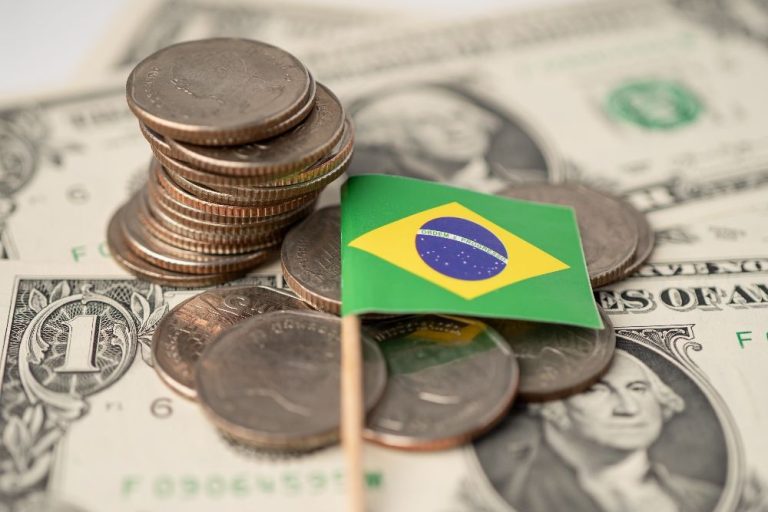Brazil’s current account deficit increased to $3.1 billion in November, according to a report from the central bank on Monday.
This data shows a growing deficit over the last year, mostly due to a drop in the country’s trade surplus.
Although the monthly deficit is slightly more than the $3.3 billion expected by economists in a Reuters survey, it is still a significant decrease from the $3 million loss recorded in November of the previous year.
Economic growth drives imports
The rise in Brazil’s current account deficit can be linked to the country’s surprisingly strong economic performance, resulting in an increase in imports and a fall in the trade surplus.
Brazil’s Finance Minister, Fernando Haddad, has estimated an optimistic 3.5% GDP growth this year.
This is significantly greater than the 1.6% prediction provided by private economists at the beginning of the year, indicating a shift in national economic dynamics.
This economic trajectory is expected to have an increasing impact on Brazil’s balance of payments.
The increase in economic activity has resulted in higher net spending on services, contributing to a wider deficit in factor payments.
The combination of these variables has resulted in a greater current account shortfall, indicating a critical crossroads for the Brazilian economy.
Trade surplus declines
In November, Brazil reported a trade surplus of $6.3 billion, a 20.9% decrease from the previous year.
This decline in trade performance reflects the underlying economic shift, as domestic demand for imported commodities increases.
Notably, the deficit in services jumped by 24.6% to $4.7 billion, while the deficit in factor payments, which includes money given to foreign investors and banks, rose by 13.8% to $5 billion.
Together, these numbers depict a difficult climate for Brazil as it seeks to balance its foreign transactions.
Foreign direct investment remains strong
Despite concerns about the current account deficit, foreign direct investment (FDI) in Brazil remains strong.
In November, the country attracted $7 billion in FDI, more than the $6.5 billion expected by a Reuters survey.
Over the last twelve months, FDI has accounted for 3.0% of Brazil’s GDP, indicating international investor confidence in the country’s economic prognosis.
This inflow of money is critical because it helps to balance the current account deficit and promotes future growth and infrastructure development.
Future outlook and challenges ahead
The current economic situation in Brazil provides a contradictory narrative: while the economy is displaying signs of resilience and development, the rising current account deficit raises serious concerns about sustainability.
Policymakers will need to handle the complexities of trade balances, notably in regulating import demand and increasing export capacity.
Furthermore, the government’s strategy will be critical in maintaining economic development while retaining foreign investors.
As Brazil’s economy evolves, its ability to manage growing deficits while maintaining investor confidence will be critical to attaining long-term economic stability.
In conclusion, while Brazil’s November current account deficit of $3.1 billion highlights the country’s mounting economic complexity, the government remains confident.
The problems created by the deficit, notably in trade balances and service payments, will necessitate careful management and strategic planning as Brazil strives for long-term growth in an increasingly competitive global environment.
The post Brazil’s current account deficit hits $3.1 billion in November amid economic optimism appeared first on Invezz

